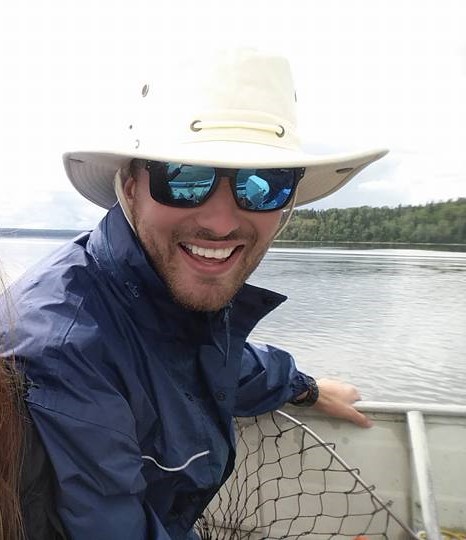
Taking a closer look at your beer
Scott Goerzen is researching the organisms that make beer spoil for his Dean's Summer Research project
By Marg SheridanSummertime is often quiet in the College of Medicine.
But while the hallways have cleared, that doesn’t mean that the students are camped out somewhere enjoying the sun. For a lot of MD students the summer months mean either taking part in an educational program, like PREP or Making the Links, or buckling down to work on one of the Dean’s Summer Research Projects.
And in terms of research subjects, Scott Goerzen is currently working on one that appears to perfectly meld research and summer.
His project, titled ‘Assessment of beer-spoilage-related lactic acid bacteria for the presence of genes related to bacterial utilization of unusual carbon sources in beer,’ definitely stands out on the list of 60 approved this year.
Goerzen, who came to the CoM with a microbiology and immunology background – and a subsequent interest in pathology – laughingly admits it isn’t really a subject you’d expect to see listed with medical research.
“We deal with organisms that can spoil beer basically… it’s a little bit out there,” he said. “The premise is that these organisms can get into the product and they can’t detect them, so the beer gets shipped out and it spoils without them knowing about it.”
So how does this tie in to medicine?
“It doesn’t have any direct medical application,” Goerzen continued. “But we’ve been looking at these bacteria, and the genetic components that allow them to do this. Because (the bacteria) are not specific to species, they can be very easily passed from one to another – so it’s very similar to antibiotic resistance.
“So what we’re doing is looking into how they’re doing it, so how they’re passing it back and forth, and also what genes are specifically important to the process that allows them to grow in beer.”
What that means, and what Goerzen himself is most interested in, is understanding more about how trading genetics works – and how developing an understanding of how the microorganisms interact with one another on a minute level can perhaps help researchers prevent them from spreading information.
The project itself plays on Goerzens’ interest in research, which he attributes to his undergrad in basic sciences, and the gentle nudge of some of his professors in that direction.
“Everything we do in medicine is based on research,” Goerzen explained. “So if you don’t have an understanding of where the evidence comes from, what processes they have to go through to obtain the evidence, then I think you’re worse off as a physician because you don’t really have a respect for the material that you’re using.
“And the other side of it is being able to critique research in a meaningful way - if you can’t read a study, and understand what they did and why they did it, you’ll need somebody to translate it for you or you’ll be losing out.”
